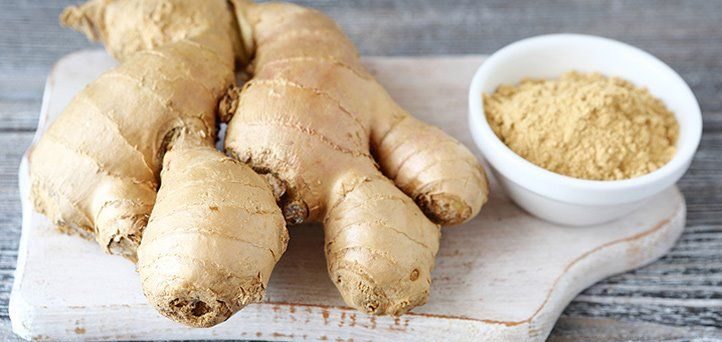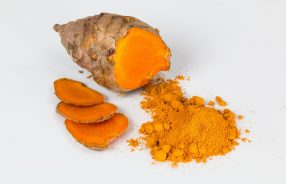Ginger Health Benefits, Components and How to Use in Daily Life
Ginger is a versatile and popular root that has been used for centuries for its medicinal and culinary properties. It is an excellent source of antioxidants, anti-inflammatory compounds, and other essential nutrients that can benefit our health in numerous ways.
We will explore the health benefits of ginger and how it can be used in various forms in our daily life to improve our well-being.
Ginger can Aid in Digestion
Ginger has been used traditionally to treat digestive issues such as nausea, bloating, and constipation. It contains compounds that stimulate the production of digestive juices, thus improving digestion. Ginger can also help to alleviate symptoms of gastrointestinal distress associated with irritable bowel syndrome (IBS).
Ginger can reduce inflammation and pain
Ginger contains powerful anti-inflammatory compounds called gingerols and shogaols. These compounds can help to reduce inflammation in the body and alleviate pain associated with conditions such as osteoarthritis, rheumatoid arthritis, and menstrual cramps.
Ginger can boost the immune system
Ginger is a rich source of antioxidants, which can help to boost the immune system and protect the body against various infections and diseases. It has also been shown to have antibacterial and antiviral properties, making it an excellent natural remedy for colds, flu, and other respiratory infections.
Ginger can lower cholesterol levels
High levels of cholesterol in the blood can increase the risk of heart disease. However, ginger has been shown to reduce cholesterol levels in the body, thus lowering the risk of heart disease.
Ginger can improve brain function
Ginger contains compounds that can improve brain function and protect against age-related cognitive decline. It has also been shown to improve memory and attention span.
How to use ginger in your daily life?
There are many ways to incorporate ginger into your diet. Here are a few ideas:
- Add fresh ginger to smoothies or juices for a spicy kick.
- Brew a cup of ginger tea by steeping fresh ginger in hot water for 5-10 minutes.
- Use ginger in stir-fries or curries for added flavor and health benefits.
- Add grated ginger to homemade marinades or salad dressings.
What type of components does ginger contain?
Ginger contains a variety of beneficial components, including:
- Gingerols and shogaols – These are the primary bioactive compounds in ginger and are responsible for its anti-inflammatory and antioxidant effects.
- Gingerdiols – These compounds have been shown to have potent anticancer activity.
- Carbohydrates – Ginger contains complex carbohydrates, which can provide a sustained source of energy.
- Essential oils – Ginger contains essential oils, such as zingiberene, which give it its characteristic flavor and aroma.
- Vitamins and minerals – Ginger is a good source of several essential vitamins and minerals, including vitamin B6, magnesium, and manganese.
- Fiber – Ginger contains dietary fiber, which can promote digestive health and help regulate blood sugar levels.
- Amino acids – Ginger contains several amino acids, which are the building blocks of protein and essential for many functions in the body.
Overall, ginger is a nutrient-dense food that provides numerous health benefits.
What are the side effects of ginger?
Ginger is generally safe for most people when consumed in moderation, but some people may experience side effects. Here are some of the possible side effects of ginger:
- Digestive issues – Some people may experience digestive discomforts such as bloating, gas, and diarrhea when consuming ginger in large amounts.
- Interactions with medications – Ginger may interact with certain medications, including blood thinners, diabetes medications, and blood pressure medications. If you are taking any medication, it is important to talk to your doctor before consuming ginger.
- Allergic reactions – Some people may be allergic to ginger and may experience symptoms such as hives, difficulty breathing, and swelling of the face and mouth.
- Skin irritation – Applying ginger topically may cause skin irritation, especially in people with sensitive skin.
- Increased bleeding risk – Ginger may increase the risk of bleeding, especially in people with bleeding disorders or those taking blood-thinning medications.
- Lowered blood sugar levels – Ginger may lower blood sugar levels, which can be beneficial for people with diabetes, but it can also be harmful for those taking diabetes medication or those with low blood sugar levels.
It is important to consume ginger in moderation and talk to your doctor before consuming ginger supplements or using ginger as a treatment for any medical condition.
Conclusion
In summary, ginger is a powerful root with numerous health benefits. It can aid in digestion, reduce inflammation and pain, boost the immune system, lower cholesterol levels, and improve brain function. By incorporating ginger into your diet, you can reap these health benefits while also enjoying its delicious flavor.





